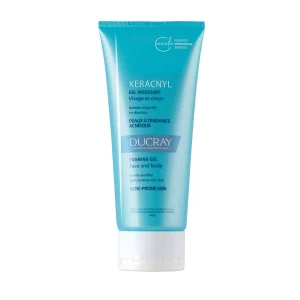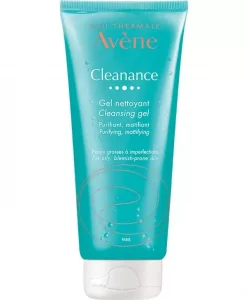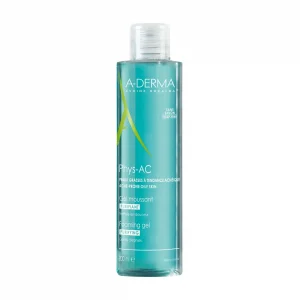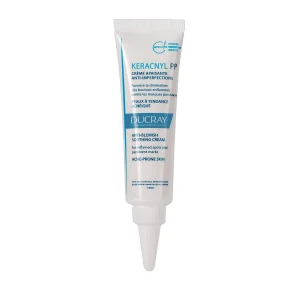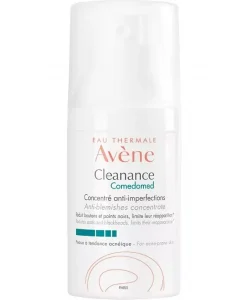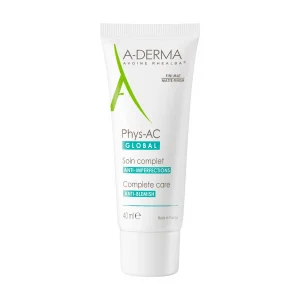
Acne is a hassle for many people. With the multitude of skin care products available to treat acne, how do you know which one is best for you? Many acne treatments are distinguished primarily by their active ingredients. It’s important to know which ingredients to look for and which to avoid. In this article from The Dermo Lab, we break down the most important ingredients, from how they work to how they are used. Here’s what you need to know!
What are the main acne ingredients in today’s skin care products?
1- Benzoyl peroxide
* Benefits for acne: Benzoyl peroxide is an over-the-counter topical medication that reduces the number of acne-causing bacteria living on the skin. By killing acne-causing bacteria, it can reduce the number of whiteheads and larger pimples, as well as the frequency of breakouts.
* How to use this product: You can find benzoyl peroxide in cleansers and they should be used once or twice a day.
* Time to action: It takes about two weeks or more to start seeing improvement.
2- Salicylic acid
* Benefits for acne: Salicylic acid is a beta-hydroxy acid (BHA) that removes the top layer of dead skin cells. It does this by penetrating deep into the pores and unclogging them. By unclogging your pores, salicylic acid can reduce the number and size of blackheads. It can also help rid your skin of excess oil, preventing new pimples from forming.
* How to use this product: You can use this product in a cleanser, gel, moisturizer, or cream. It should be used once or twice a day, depending on the product you use.
* Time to action: You will see results in one to two weeks.
3- Alpha hydroxy acids (AHAs)
* Benefits for acne: AHAs are a group of chemical exfoliants. They eliminate dead skin cells and prevent sebum accumulation and bacterial proliferation. There are different types of AHAs such as:
- Lactic acid
- Mandelic acid
- Glycolic acid
By removing dead skin cells and getting rid of excess oil, AHAs can help unclog pores, reducing breakouts.
* How to use this product: AHAs are best used in low concentrations in a daily cleanser. You can also use them as a chemical peel exfoliant once a week.
It is important to wear sunscreen if you use AHAs in your skin care routine, as AHAs make your skin more sensitive to UV rays.
* Time to action: AHAs work fairly quickly, and you can see improvement in a week or less.
4- Retinol
* Benefits for acne: Retinol is a type of retinoid, which is a derivative of vitamin A. It can increase the rate of skin cell turnover by removing the top layer of dead cells and promoting the growth of new collagen and healthy cells.
Retinol is ideal for reducing the size and frequency of blackheads, whiteheads, and even deeper painful pimples due to its skin cell renewal capabilities. In addition, it will improve the overall texture and tone of your skin.
* How to use this product: Retinol is usually available in gel form. It is recommended to start with low concentrations, as retinoids can cause redness, itching, dryness, and sun sensitivity. It is best to apply retinol at night before bedtime, and use a moisturizer afterward to combat any dryness. Also, they should not be used during pregnancy.
* Time to action: Retinoids take longer to work. It will likely take 4-6 weeks or more to see results.
5- Tea tree oil
* Benefits for acne: Tea tree oil has anti-inflammatory and antibacterial properties, which can be helpful for acne.
* How to use this product: You can use tea tree oil in a cleanser. Tea tree oil as an essential oil should not be applied directly to the skin as it can cause a rash.
* Time to action: Studies show slight results after 4 weeks, and even more after 12 weeks.
6- Sulfur
* Benefits for acne: Sulfur reduces the frequency of blackheads and whiteheads. This is because it removes the top layer of skin cells, which unclogs pores. In addition, it can reduce the redness and size of pimples.
* How to use this product: Sulfur is available in cleansers or spot treatments.
* Time to action: Spot treatments can improve the appearance of pimples in just a few days.
What ingredients should you avoid if you have acne-prone skin?
If your skin is prone to acne, beware of products that contain occlusive agents. These are ingredients that form a film on the surface of the skin to help retain moisture. They are found in many moisturizers and can be greasy.
These occlusive agents include:
- Cocoa butter
- Lanolin
- Mineral oil
- Kerosene
- Vaseline
- Silicone derivatives such as dimethicone and cyclomethicone. These silicones are often used with petroleum jelly, which can make them greasy.
When buying skin products, sunscreens, and cosmetics, look for those that are labeled “non-comedogenic” or are water-based, as they won’t clog your pores or make your acne worse.
Skin care tips for using acne products
1- Wash your face twice a day. Use a mild soap-free cleanser and don’t overdo it. Excessive washing and scrubbing can make acne worse. The type of products you use to wash your face is just as important as the frequency. After all, if you don’t choose the right product for your skin type, you risk drying out your complexion during your twice-daily cleansing routine.
Below are 3 acne cleansers that should help even the most sensitive acne-prone skin types.
Ducray Keracnyl Foaming Gel
Eau Thermale Avène Cleanance Cleansing Gel
A-Derma Phys-AC Foaming Gel
2- Use acne treatments. Apply your acne treatment right after cleansing the skin. Acne pimple treatments reduce inflammation, eliminate bacteria and soothe irritation. Keep reading to learn about the best pimple treatments.
Ducray Keracnyl PP Anti-Blemish Soothing Cream
Eau Thermale Avène Cleanance Comedomed
A-Derma Phys-AC Global
3- Avoid oily cosmetics and hair products. Use products labeled water-based or non-comedogenic.
5- Do not scratch or squeeze blemishes. This could lead to infection or scarring.
6- Keep your hair clean and away from your face.
How to choose the right product
When it comes to finding the best acne treatment, there are many things to consider. First, you need to think about your skin type, especially if you have sensitive skin that may react to stronger ingredients. Next, consider the type of acne you have and its severity. The product that works best for mild inflammatory acne might not work for moderate cystic acne. If you don’t know where to start, consult a dermatologist.

